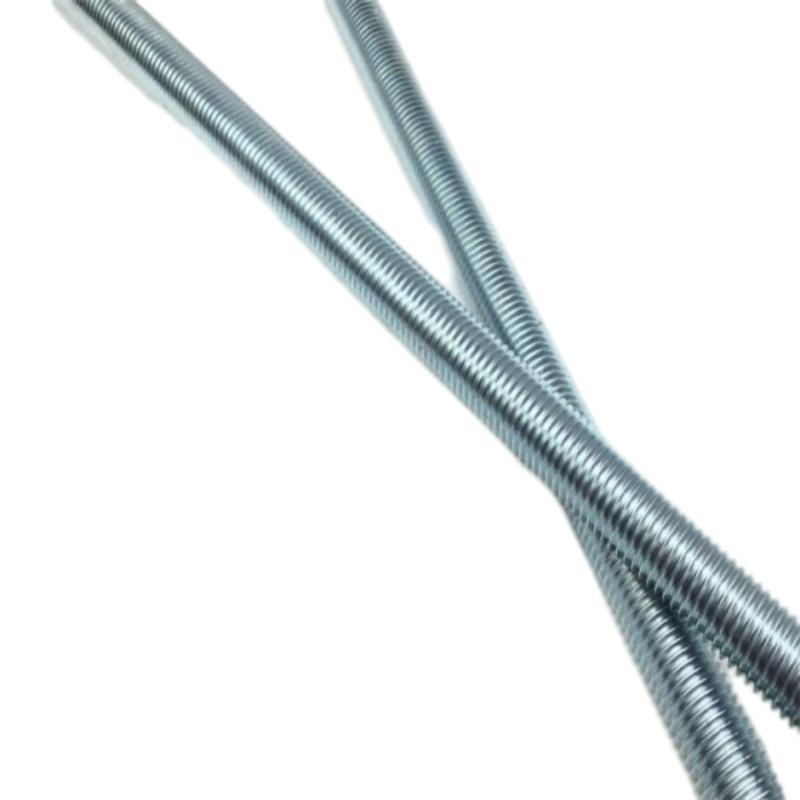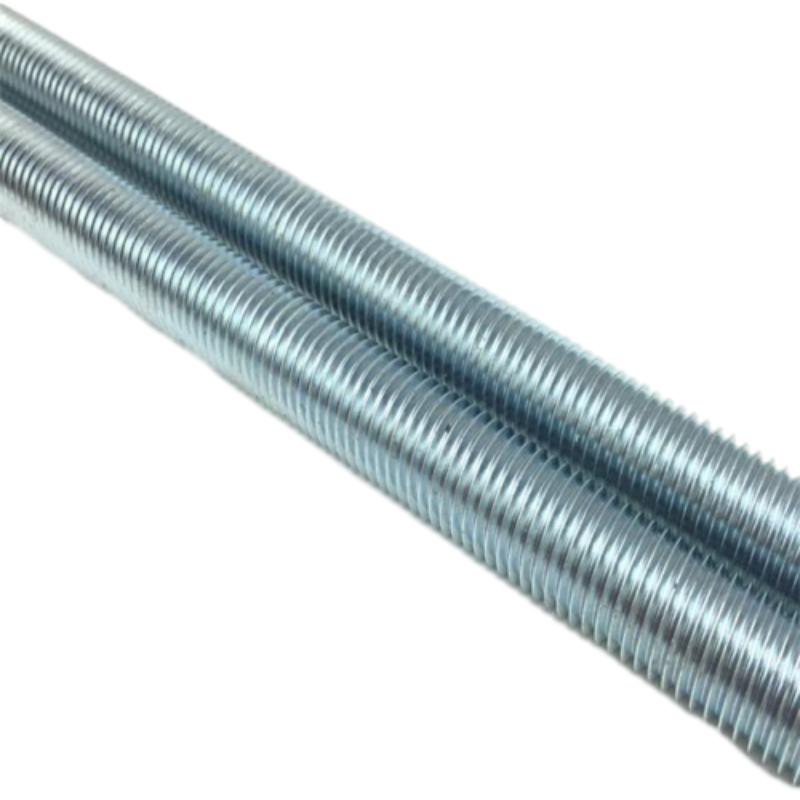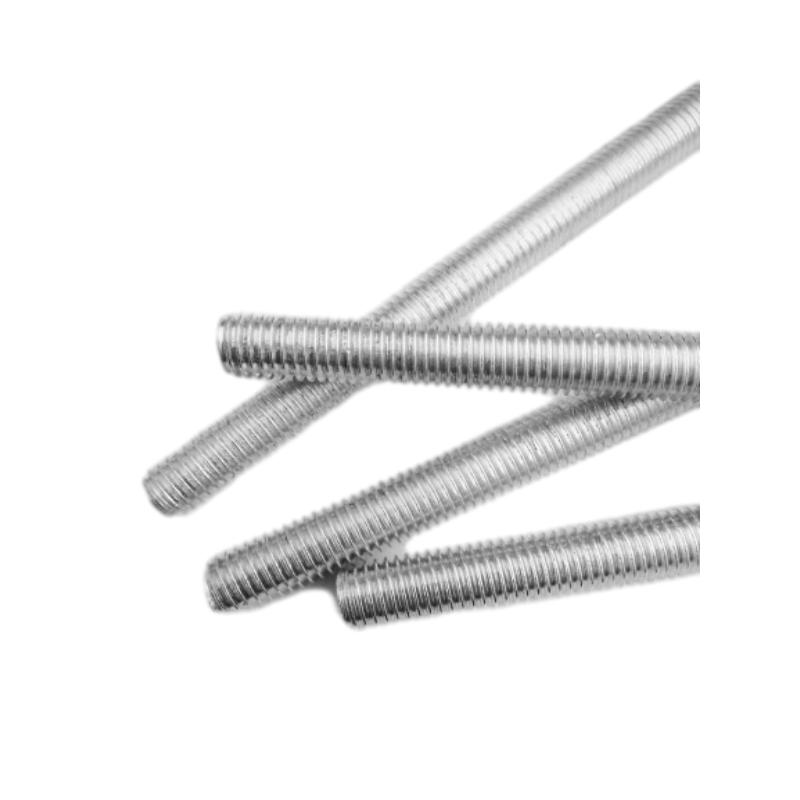Jul . 29, 2025 11:20 Back to list
DIN975 Threaded Rod: High Strength, Standard Compliant Fastener
In today's demanding industrial landscape, the DIN975 threaded rod has become a benchmark for engineers, procurement professionals, and OEMs worldwide. Combining robust mechanical characteristics, versatile applications, and compliance with international standards, this threading solution addresses the evolving needs across sectors like oil & gas, metallurgy, plumbing, and heavy machinery. This article presents an exhaustive analysis of the din975 threaded rod— delving into its technical benchmarks, global market dynamics, manufacturing process flow, and real-world applications that underscore its enduring value.

1. Industry Overview: Global Trends for DIN975 Threaded Rod
Global demand for high-strength fastening solutions, such as DIN975 threaded rod, has surged by an estimated 7.2% CAGR between 2021-2024 (Grand View Research, 2024). The growth is driven by infrastructure investment, renewable energy projects, petrochemical plant expansions, and the push towards modular construction. The DIN 975 standard—synonymous with quality, interchangeability, and safety—remains a reference across project specifications.
2. What is DIN975? Key Definitions and Standard Insights
DIN975 refers to the German Institute for Standardization specification for fully threaded rods — metallic rods threaded along their entire length, typically conforming to metric dimensions (M3–M52).
- Full thread across entire rod length
- Material grades: 4.8 / 5.8 / 8.8 / 10.9 (as per ISO 898-1 for mechanical properties)
- Standard: DIN 975:1990 (replaced by EN 10055, but DIN975 remains a commercial reference)
- Related standards: DIN 976 (for studs and double-end threaded rods). din975 threaded rod supplies are widely interchangeable with these benchmarks.
3. Technical Parameters: Specifications Table & Material Grades
| Property | Description | DIN975 Gr.4.8 | DIN975 Gr.5.8 | DIN975 Gr.8.8 | DIN975 Gr.10.9 |
|---|---|---|---|---|---|
| Material | Steel (C, Mn) | Q235/SAE1008 | Q255/1045 | 42CrMo/40Cr | 42CrMo/Alloy |
| Ultimate Tensile Strength (MPa) | Minimum required | 400 | 520 | 800 | 1040 |
| Yield Strength (MPa) | Minimum required | 320 | 420 | 640 | 940 |
| Thread Type | Metric (ISO 965-1) | M8 – M64, pitch as per DIN 13 | |||
| Diameter (mm) | Major dia. | M3–M52. Special up to M90 | |||
| Surface Finishes | Standard/Optional | Plain, Zinc, HDG, Black oxide, Dacromet | |||
| Length per standard | Default lengths | 1m, 2m, 3m (custom cut available) | |||
| Certs/Compliance | QA Documentation | ISO 898-1, BS/EN, Mill certs, RoHS, REACH | |||
Note: For DIN 975 8.8 and above, heat treatment and traceability documentation (per norma din 975) are standard.

4. Thread-Rod Manufacturer Sell Grade 4.8 / 5.8 / 8.8 Full Thread DIN 975: In-Depth Product Profile
Thread-Rod Manufacturer Sell Grade 4.8 / 5.8 / 8.8 Full Thread DIN 975 is engineered for rigorous load, vibration, and corrosion demands.
Key features:
- Material grades: 4.8 / 5.8 / 8.8—suitable for light to heavy structural connections.
- Precise threading, full length, with options for hot-dip galvanizing (HDG), black oxide, and Zn coatings.
- Custom cut-to-length up to 6 meters.
- Fulfills DIN975 threaded rod standard with 100% batch traceability.
- Backed by ISO 9001/14001, ANSI, EN10204-3.1 certifications.
Manufacturing Process Flow: DIN975 Threaded Rod
Steel bars (per EN10025/Q235/42CrMo) undergo chemical, spectro & physical testing.
Certified with ISO/ROHS traceability.
CNC shearing lines cut rods to required length (1–3m), ensuring <2mm/m straightness tolerance.
Multi-die machines cold-roll full threads per DIN 13, yielding precise metric profiles.
For grades 8.8+, processes include hardening/quenching and tempering (ISO 898-1).
Options: Black oxide, zinc plating, hot-dip galvanizing (ASTM A153/DIN EN1461).
Dimensional, hardness, and salt spray test. Final packing as per export standards.
Typical Inspection Protocols: Rockwell hardness, salt spray corrosion (>600h HDG), pull-out test, ultrasonic and visual inspection.

5. Application Scenarios: Where is the DIN975 Threaded Rod Used?
- Petrochemical plants: Pipe fastening, pump bases, and structural supports. HDG and 8.8 grade recommended for corrosion/strength.
- Civil construction: Formwork tie rods, curtain wall anchoring, rebar coupling in modular buildings.
- Water treatment: Stainless or Zn-coated options withstand harsh chemicals.
- Railway & bridge engineering: Expansion joints, anchoring plates.
- OEM heavy equipment: Foundation bolting, vibration dampening machine skids.
- Power/renewables: Solar array fixing, cable tray mounting (source).
A major Middle East project specified 10,000 meters of DIN975 8.8 threaded rod (HDG finish) for pipeline hangers and storage supports.
Outcome: Achieved 36% installation time savings, extended lifecycle by ≥12 years compared to locally sourced rods (uncoated).
Standards: All test certificates per DIN 975 976 & ISO 898-1 delivered digital (pdf).
6. Technical Advantages of DIN975 Threaded Rod
- Manufactured per DIN 975 threaded rod standard → ensures dimensional compatibility and mechanical consistency.
- Wide range of grades (4.8-10.9) matches varying design loads and structural requirements.
- Multiple surface treatments—zinc, HDG, Dacromet—provide enhanced corrosion resistance for aggressive environments.
- CNC-thread rolling process delivers class-leading thread accuracy (up to 6g/6h tolerance, ISO 965-1).
- Cost-efficient for long runs; available in custom pack/unit quantities or jumbo bundles.
- Full traceability (batch/heat/lot) supports QA audits and compliance with global standards.
7. Manufacturer Comparison & Custom Solutions
| Manufacturer | Grades | Max Length (m) | Coatings | Certs | MOQ | Notes |
|---|---|---|---|---|---|---|
| YTBolt (China) |
4.8 / 5.8 / 8.8 / 10.9 | 6 | HDG, Zn, Black, Dacromet | ISO/EN10204 | 1000 pcs | Full custom/OEM; quick delivery |
| Hilti (Europe) |
5.8 / 8.8 | 3 | HDG, Galvanized | ISO/UL | 200 pcs | Top Western brand, high cost |
| Bulten (Europe) |
8.8 / 10.9 | 3 | Zn, HDG | ISO, EN | 500 pcs | Automotive focus |
| Powers Fasteners (US) |
4.8 / 5.8 | 2.4 | HDG | ICC-ES, UL | 100 pcs | North America only |
Customization: din975 threaded rod is available with cut-to-length machining, special cut threads, surface colors, bundled assembly kits, and international pack compliance (ISPM-15 for pallets).
8. Typical FAQ & Professional FAQ on DIN975 Threaded Rod
9. Delivery, Warranty & Customer Support
- Lead Time: Standard din975 threaded rod ready in 3–7 days for common grades, 10–15 days for custom order.
- Warranty: 12-month manufacturing warranty, with extended corrosion warranty for HDG/Dacromet finishes.
- Customer Support: Free technical consultation, drawing assistance, engineering samples, and expedited shipping options (DDP/FCA/FOB).
- Quality Documentation: Mill test certs, ISO/EN compliance, and din 975 standard pdf included in shipment records.
10. Summary & Reference Links
The DIN975 threaded rod stands out as a global fastener standard, offering outstanding customization possibilities, high traceability, and proven mechanical integrity across critical industries. For designers, procurement managers, or technical consultants seeking robust compliance and timely delivery, trusting certified suppliers and relying on standard-conformant documentation (such as the din 975 pdf) dramatically enhances project reliability and asset lifespan.


